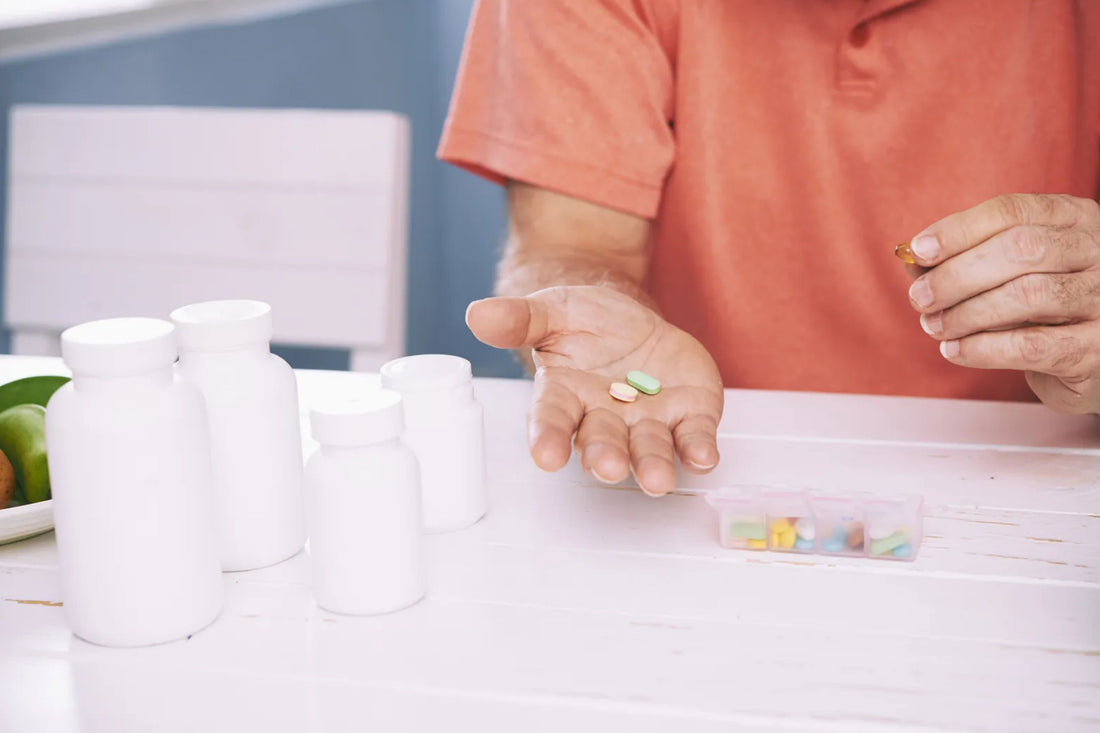
How to Choose Safe & Effective Supplements in the U.S. Market (labels, certifications, FDA disclaimers)
Share
The U.S. supplement market is massive — from vitamins and probiotics to collagen powders and herbal blends — but not all supplements are created equal. 🤔
With thousands of brands and mixed regulations, how do you know which ones are safe, effective, and legitimately backed?
In this guide, we’ll walk you through everything you need to confidently choose supplements in the U.S. — including labels, certifications, FDA disclaimers, and red flags to avoid. ✅
🔍 Why Supplement Safety Matters
Unlike prescription drugs, dietary supplements in the U.S. are not approved by the FDA before hitting the shelves. That means the responsibility falls on consumers to evaluate products for safety and effectiveness.
💥 Risks of low-quality supplements:
- Contaminants (heavy metals, pesticides)
- False claims or misleading dosages
- Hidden ingredients (like steroids or unlisted drugs)
- Ineffective or underdosed active compounds
🧠 Your health is worth doing the homework.
📦 1. Read the Supplement Label Like a Pro
Always start with the Supplement Facts Panel — here’s what to check:
✅ Look for:
- Serving size & servings per container
- Exact amount of active ingredients (not hidden in blends)
- Ingredient source (e.g., magnesium citrate vs. oxide)
- Any added fillers, binders, or artificial additives
⚠️ Avoid:
- “Proprietary blends” without clear dosages
- Ingredients you can’t pronounce or research
- Vague marketing like “natural” with no backing
🔎 Transparency is a sign of a reputable brand.
🧪 2. Choose Supplements with Third-Party Testing
Third-party testing = unbiased quality control.
This means an independent lab has verified what's in the bottle matches the label — and is free from harmful contaminants.
Look for these trusted certifications:
- ✅ NSF Certified for Sport
- ✅ USP Verified (U.S. Pharmacopeia)
- ✅ Informed Choice or Informed Sport
- ✅ ConsumerLab.com tested
- ✅ BSCG (Banned Substances Control Group)
🔬 These seals = tested for purity, potency, and safety.
🧯 3. Check for FDA Disclaimers
In the U.S., supplements cannot claim to diagnose, treat, cure, or prevent any disease — unless approved as a drug.
All legitimate products will carry the FDA disclaimer:
“These statements have not been evaluated by the Food and Drug Administration. This product is not intended to diagnose, treat, cure, or prevent any disease.”
📜 No disclaimer = 🚩 red flag for false medical claims.
🌱 4. Understand What Claims Are Actually Backed by Science
Just because a label says:
- “Boosts immunity”
- “Burns fat fast”
- “Improves memory”
…doesn’t mean it’s true. Look for brands that:
- Cite peer-reviewed studies
- Are clinician-formulated or doctor-recommended
- Clearly define the mechanism of action (how it works)
🧬 Pro tip: Look for supplements with clinically studied ingredients like ashwagandha KSM-66®, BioPerine®, or OptiMSM® — not generic versions.
🌿 5. Match the Supplement to Your Unique Needs
Not every supplement is for everyone. Consider:
- ✅ Your age & gender (e.g., men’s vs. women’s multivitamins)
- ✅ Your lifestyle (athletic, plant-based, etc.)
- ✅ Your health goals (energy, sleep, skin, immunity, etc.)
- ✅ Known allergies or sensitivities
💡 When in doubt, consult your healthcare provider — especially if you’re pregnant, nursing, or on medication.
🚫 6. Watch Out for These Red Flags
Avoid supplements that:
- ❌ Make outrageous or instant health claims
- ❌ Lack ingredient transparency
- ❌ Have no third-party testing
- ❌ Are sold only via social media or MLM schemes
- ❌ Have bad or fake-looking reviews
🧨 If it sounds too good to be true — it probably is.
🛍️ Bonus: Where to Buy Safe Supplements
Stick to reputable retailers or official brand websites:
- 💊 Pharmacies (CVS, Walgreens, Rite Aid)
- 🌿 Health-focused retailers (Whole Foods, Sprouts)
- 🛒 Trusted online stores (iHerb, Amazon — sold/shipped by brand)
- 🏬 Direct from manufacturer (for freshest inventory)
📦 Double check that the product isn’t expired and is properly sealed.
✅ Final Checklist: Safe Supplement Buying in the U.S.
Before you buy, ask yourself:
☑ Is the label clear and detailed?
☑ Does it include the FDA disclaimer?
☑ Is there third-party testing or certification?
☑ Are the claims backed by science or studies?
☑ Does it match your personal health needs?
☑ Is it from a reputable source?
![HBS+ [ Human Being Sports ]](http://humanbeingsports.com/cdn/shop/files/logo.png?v=1747052408&width=600)
